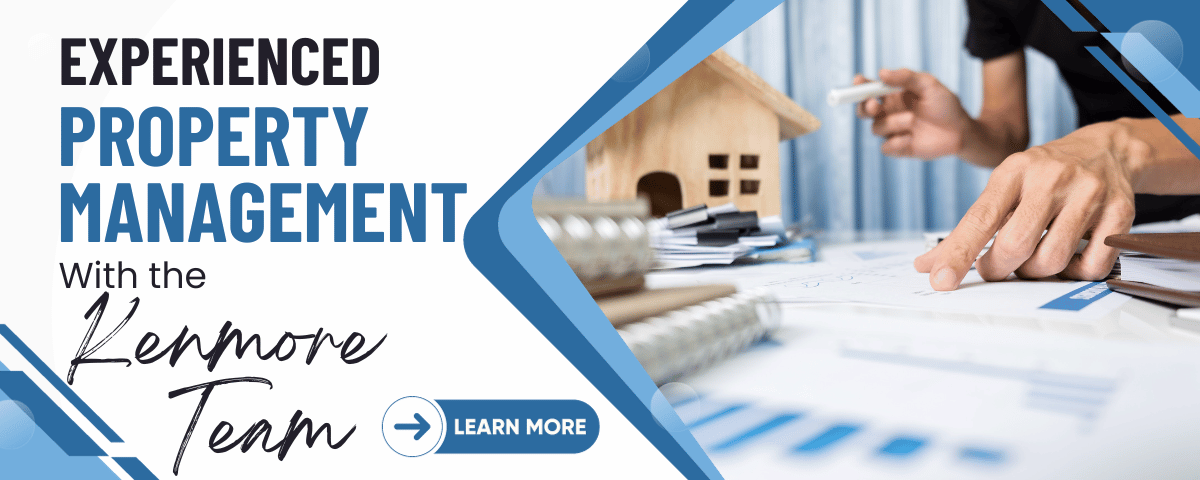Are you ready to hire a property management company? An infographic from MySmartMove shows that 44% of people that own rental properties don’t manage them. Asking the right questions is the key to finding the best property manager to manage your rental portfolio.
A property manager is experienced in finding tenants and handling all the tedious tasks you would do as a landlord. Let’s get started!
What is a property manager?
It’s important to know what a property manager does before you start asking them questions. A property manager is an independent third-party hired by people like you to oversee the daily operations of a rental. They can handle different types of properties and tasks depending on your rental agreement and the type of property.
You can find property managers who will handle the most important things, such as finding you a renter and collecting your rent. It’s possible to find a property manager who can do all of the work, so you don’t need to worry about anything.
Why hire a property manager?
Success is dependent on a good relationship between the landlord and property manager. You should also ensure that your reasons for hiring a property manager are the right ones. Let’s take a look at the reasons why you would hire a property management company.
Benefits of a property manager
So you’re thinking about hiring a property manager, but you also know that hiring someone comes at a cost. Let’s consider the future. A manager will save you money by establishing the correct rental price, knowing the local, state, and federal laws, and having a list of contractors for attending to maintenance issues. All of this can give a landlord more time to invest or enjoy their everyday lives.
Common tasks of a property manager
To reiterate, the contract between you and your property manager will determine what the manager does. To simplify the situation, let’s look at what a typical property manager does:
- Market the rental property
- Tenant screening
- Execute the lease agreement
- Collect monthly rent
- Keep up with property maintenance
- Addressing tenant requests
You don’t have to worry about anything. A property manager can take care of everything, from managing your rental home to the most complex tasks.
How to hire a property manager
You may be just getting started and not even think about hiring a property manager, either because you feel overwhelmed or for other reasons. It is just one more thing to do on your long list of tasks. We get it. Let’s start at the beginning. You can find a good property manager by asking around. This is our top pick, particularly if you’re just starting out.
When someone is referred to you, you are more likely to trust the relationship between the property manager and the landlord than if you just met them. Google search is the second place to look. When you Google “property manager company”, pay attention to reviews. These can be a great indicator when starting a relationship with a new rental vendor, such as a real estate agent.
11 Questions to ask a property manager
Now that you know why and what the benefits are to hiring a property manager, let’s learn about the questions you need to ask. These are the top 10 questions you should ask a potential property manager. You can also watch a video of this article:
1. Are you a licensed property manager? Do you have any certifications?
To legally manage a property rental for another person in New York and to receive compensation, you need to be a licensed NY State real estate agent! Beware of property managers who are not licensed to practice realty in their state. Many professional trade associations offer property management certification courses in addition to state licensing.
2. What types of properties do you manage?
Your future property manager should be able to handle the tasks that come with your property and give it the attention it deserves. Management of a duplex differs significantly from that of an apartment complex or condo association. The laws differ depending on how many units are in a complex. The escrow account requirements for a large complex are different from those for a duplex.
3. What is your fee structure?
Property Management Fees are a major factor in choosing a manager. In most cases, the management company is paid on the basis of the rental income generated by the property. The property manager should outline any additional fees and include them in the contract.
Examples Of Possible Fees
It’s important to understand the most common types of property management fees.
- Maintenance Reserves
- Costs of court & evictions
- Tenant finder fees
- Maintenance Markups
- Call-out services for emergencies
- Early Cancellation Of Contract Fees
- Lease Renewal fees
4. How do you send reports? Can I see a sample?
The way a property manager presents financial data can impact your ability to truly understand the situation at your property. Your property manager should have the ability to clearly and concisely explain to you everything that is on your reports. Ask questions about any unclear information. Before you sign an agreement, the property manager should provide you with a sample of a report so that you can understand it once you receive it. Clarify how and when reports will be sent to you.
5. What does your tenant screening process look like?
You will have tenants move out at some point during the rental period. You should have a system in place for screening tenants. Does the manager perform background checks and credit checks ? Potential tenants must fill out a rental form. Does the manager check employment history? Do you speak to former landlords? You need to know who is responsible for making the final decision on whether or not a tenant can lease an apartment. It is your investment.
6. Who is responsible for the maintenance work?
Your maintenance may be done by an internal maintenance team, a contractor or even the property manager! It is important to know who does the work so that you can maintain accurate records.
You may need a licensed or accredited contractor to finish the job, depending on where you live and what type of work needs to be completed. Inspections and permits may be required. Your manager will know when these things need to be done. Your next question is…
7. Do you manage contractors?
You know that even if this is your first time investing, you will need to hire a contractor or repair person. You don’t need to be a contractor unless you are one yourself. We’ll assume, however, that since you’re here reading about property management you prefer a subtly more hands-off method.
Using this information, you can start to think about what you might need. Start by determining whether you need a plumber, electrician or general handyman. Ask a property manager if they use contractors to help with issues relating to the hiring of vendors. If they have the contacts, you can save time by not having to search for someone to fix a problem.
8. How is rent collected?
The policy of the property manager should include how rent is collected. Rent is collected by the property manager or mailed in by tenants. Maybe tenants can just take it to the bank. The lease should specify the date the rent is due and the amount due. It should also include any late fees that may be associated with late payments. The lease should specify when the tenant becomes in default and can be evicted for nonpayment.
9. Do you have any sample documents that I can see?
You should be able to get sample documents from any property manager. You might want to look at documents like:
- Leases
- Property Management Agreements
- Condition reports for Move in / Move out
- Property Owner Financial Reports
- Common Correspondence
- Renting Applications
10. How long is the management agreement?
A property management contract should not be entered into lightly. Understanding the contract’s terms, such as the length of term, the renewal process, and how to terminate the contract if one party is not satisfied with the partnership, will help you avoid any unpleasant surprises. Before you sign any management agreement, your attorney should review it.
11. How often do you review local, county and state laws?
Your property manager must be familiar with the law. It’s important to ask, even if you think it should be obvious. You want to make sure that your property manager is following local, state, and federal laws. This could include fair housing laws.
12. Do you have references?
Speak with other people who worked with your property managers. This could be clients, business people, real estate agents or mortgage brokers, lawyers, contractors, or other parties with whom the manager has a good relationship. You can ask them about the positives and negatives. Before signing an agreement, a property manager shouldn’t hesitate to provide references.
Hire a property manager in a simple way
After you have interviewed potential property manager candidates, it is time to narrow your search and hire. Hiring a property management company is a great way to take the next step for your business. It can seem “scary” and “overwhelming”, but it’s also a breath fresher to hand over the responsibilities of your rental property to someone else.




